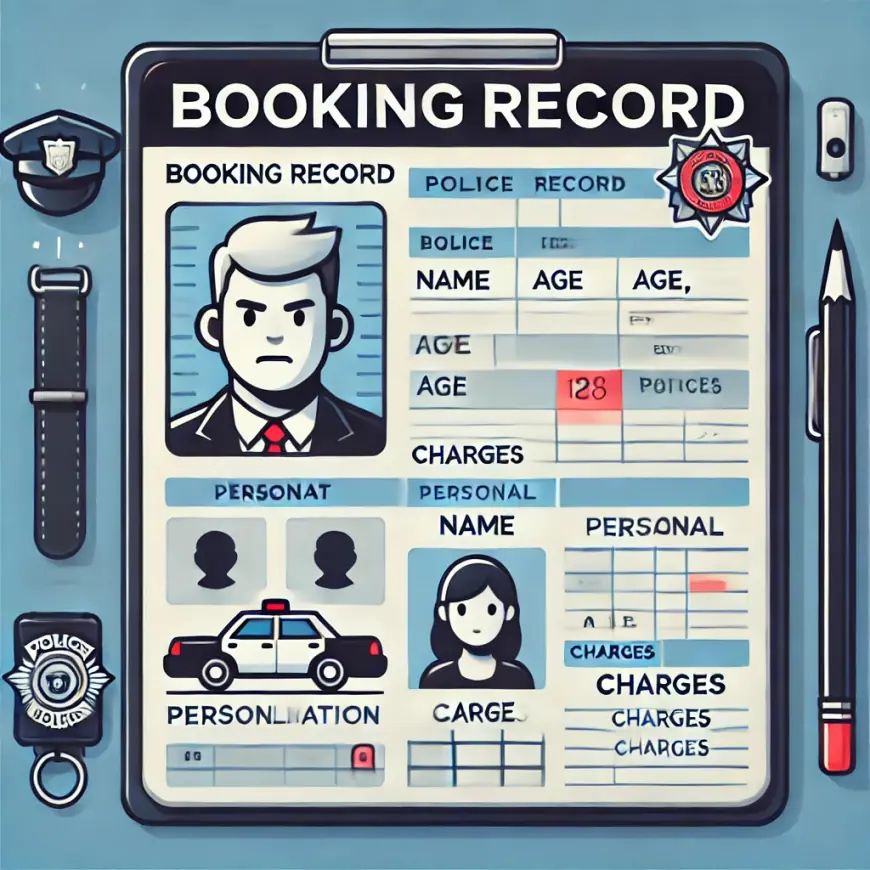Police Booking Records: What You Need to Know
Discover everything you need to know about police booking records, from how they’re created to how they can impact you. Learn about accessing these records, legal implications, and more with insights from Arrests.org SC.

Police booking records, also known as booking logs or arrest records, document the process when a person is taken into custody by law enforcement. These records capture a wide range of information, including the suspect’s personal details, the charges they are facing, and the events surrounding their arrest. The creation of booking records is an essential part of the criminal justice system, as it helps maintain accurate data and provides transparency in the law enforcement process.
When a person is arrested, they undergo a "booking" process at a police station or detention facility. This process typically includes photographing and fingerprinting the individual, obtaining personal details (name, age, address), and recording the charges or allegations. Booking records also note any evidence or items seized during the arrest and provide crucial information about the time, place, and reason for the arrest.
For those seeking access to booking records, platforms provide an online database of booking information, helping individuals, journalists, and legal professionals stay informed.
The Importance of Police Booking Records
Police booking records are vital for several reasons:
- Transparency and Accountability: These records provide transparency about law enforcement actions and ensure that arrests are properly documented.
- Legal Proceedings: Booking records often serve as critical evidence in court cases, influencing the legal process, whether for the defense or prosecution.
- Public Safety and Awareness: By maintaining accessible booking records, the public can stay informed about local arrests and law enforcement activity.
While these records are publicly accessible in many areas, laws regarding the privacy and availability of booking records vary depending on jurisdiction.
What Information Is Included in Police Booking Records?
Booking records typically contain the following information:
- Personal Details: Full name, age, gender, address, and date of birth of the individual being arrested.
- Booking Number: A unique identifier assigned to the booking record.
- Arrest Charges: A detailed list of the criminal charges the individual is facing at the time of arrest.
- Date and Time of Arrest: When and where the individual was taken into custody.
- Booking Photo: Often referred to as a mugshot, this photograph is taken during the booking process and becomes part of the record.
- Fingerprinting Information: Fingerprints of the arrested individual are often recorded as part of the process.
- Arresting Officer's Information: The name and badge number of the law enforcement officer who made the arrest.
Booking records might also contain information about previous arrests, outstanding warrants, and any evidence seized during the arrest.
How to Access Police Booking Records
Accessing police booking records depends on local laws and the policies of the police department or sheriff's office handling the case. In many states, booking records are considered public records, which means they are accessible by anyone through government websites or online databases. However, certain information may be redacted or restricted to protect the privacy of the arrested individual, especially if the case involves sensitive details such as juveniles or ongoing investigations.
Some ways to access booking records include:
- Online Databases: Websites like Arrests.org SC offer a comprehensive and easy-to-navigate platform for accessing booking records across multiple jurisdictions.
- Direct Requests: You can request booking records from the police department or sheriff’s office in the area where the arrest took place. Often, a public records request must be filed.
- Third-Party Websites: Numerous private companies offer services to search booking records for a fee. These companies typically gather information from public databases and provide it to consumers.
It’s important to check the laws in your area to understand the process for accessing booking records and any fees that may apply.
How Are Police Booking Records Used?
Police booking records are used in various ways, including:
- Criminal Defense: Lawyers and defendants use booking records to understand the charges and circumstances surrounding an arrest. Booking records can also be useful for challenging the legality of an arrest or the severity of charges.
- Public Awareness: Booking records help the public stay informed about criminal activity in their communities. Local news outlets often report on recent arrests, and individuals can use online databases to look up recent bookings.
- Law Enforcement and Research: Researchers and policy analysts use booking records to examine trends in arrests, law enforcement practices, and criminal justice outcomes. This data helps inform policy decisions and public safety efforts.
The Pros and Cons of Public Access to Booking Records
Pros
- Transparency: Public access to booking records helps keep law enforcement accountable.
- Informed Public: The availability of booking records allows citizens to stay informed about criminal activity in their area.
- Legal Benefits: Booking records serve as official documentation for legal proceedings and criminal defense.
Cons
- Privacy Concerns: Publicly accessible booking records can infringe on an individual’s privacy, particularly if they are arrested for a minor or nonviolent offense.
- Risk of Misuse: Booking records, especially mugshots, can be exploited by third-party websites that charge fees to remove these images, leading to potential extortion.
- Stigma: Even if charges are dropped or a person is acquitted, booking records can perpetuate a criminal stigma that affects future employment or housing opportunities.
How to Remove Police Booking Records
In some cases, individuals may seek to have their booking records removed or expunged. The process for doing so depends on the jurisdiction and the outcome of the case. If charges are dropped or the individual is acquitted, they may be eligible for record expungement, which legally removes the arrest record from public databases.
Here are some common ways to remove booking records:
- Expungement: If an individual is not convicted or the charges are dropped, they can petition the court to have the booking record expunged, meaning it is permanently removed from public records.
- Sealing Records: Some jurisdictions allow individuals to seal their records, meaning they are still accessible by law enforcement but not the general public.
- Request Removal: Some websites offer a formal process to request the removal of mugshots or booking records, although this may involve a fee or legal action.
It’s important to consult with an attorney to understand the specific process for removing or sealing booking records in your area.
Police booking records are an essential component of the criminal justice system. They ensure transparency and accountability in law enforcement, while providing critical documentation for legal proceedings. However, the public availability of these records raises important privacy and ethical questions that need to be addressed.
If you are interested in accessing police booking records or learning more about arrest history, is a reliable resource to help you find information across multiple jurisdictions.
By understanding how booking records work and the legal implications involved, you can make informed decisions about how to access, use, or request the removal of booking information.
What's Your Reaction?
 Like
0
Like
0
 Dislike
0
Dislike
0
 Love
0
Love
0
 Funny
0
Funny
0
 Angry
0
Angry
0
 Sad
0
Sad
0
 Wow
0
Wow
0


















































